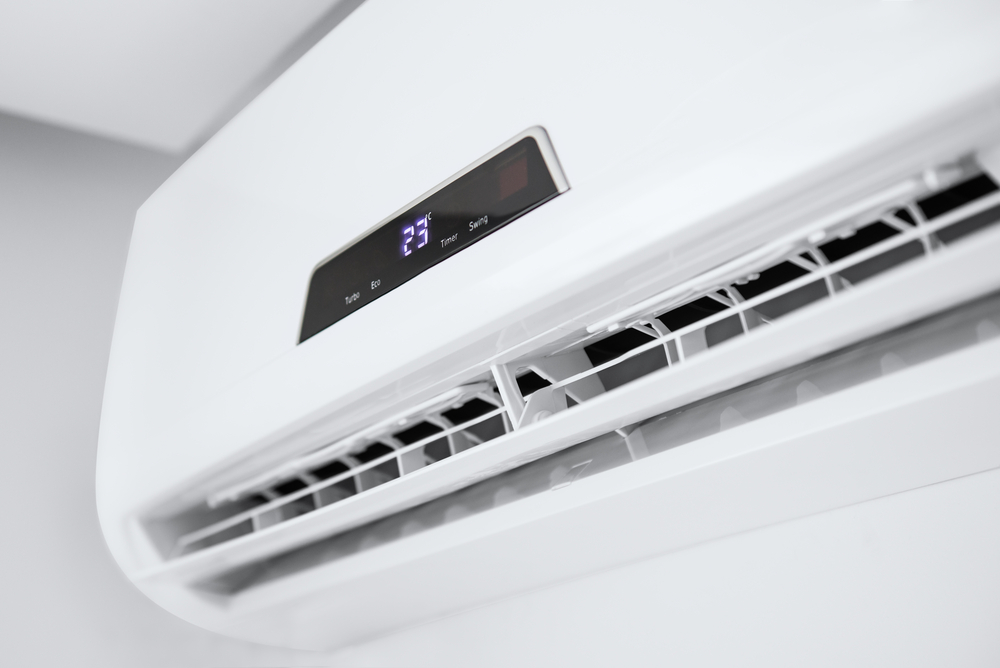Guide: What Size Air Conditioner Do I Need?

Summertime is upon us, and many people will be replacing their air conditioners or purchasing new ones. If you are one of those people, keep in mind that not all air conditioners are the same and that size matters more than you may think it does.
Air Conditioner Ratings
Air conditioners are normally rated in two ways: either by energy efficiency or cooling capacity. When it comes to cooling capacity, all air conditioners will be labeled with a BTUh or BTU rating. BTUh stands for British Thermal Unit per hour while BTU stands for British Thermal Unit. The BTUh Majors the cooling ability in an hour that your air conditioner put out and it is labeled in tons of air conditioning. One ton of air conditioning means that 12,000 BTUs of heat each hour are being removed from the air. The BTU of an air conditioning unit means the amount of energy that is needed to increase the temperature of a pound of water by one degree Fahrenheit.
SEER stands for Seasonal Energy Efficiency and some air conditioners are rated with this, which indicates an air conditioner’s amount of energy efficiency. The ratio is determined by the amount of cooling that is provided during the entire cooling season and then divided by the total amount of electrical energy that was used. So, basically, the higher the SEER rating is, then the more energy-efficient the whole air conditioning system is.
Why Size Matters
When it comes to the heating and cooling unit in your home, the unit size is extremely important because if you get one that is too big, you’re going to be paying out more in energy costs then you need to, but if it’s too small, then your home will not be properly heated or cold. Also, if your new AC unit is improperly sized it will not work as efficiently as it was designed to do so. An undersized air conditioning unit is going to have to run basically all the time to be able to reach the desired temperature of your home and will cause it to wear out sooner than it should.
Variables That Can Affect the Size of Air Conditioner
The main factor that is focused upon when choosing the right size air conditioning system for your home is the square footage of your house, but there are some variables that can come into play also.
One variable is climate since warmer climates require air conditioning units throughout the year instead of just during the summer months so people who live in warmer climates may want an air conditioning unit with a higher SEER rating.
Your home’s exterior, including the type of material on the outside of your home as well as the color of it, can affect how much heat is either absorbed or reflected. For instance, lighter colors tend to reflect heat from the sun, while brick homes may absorb more heat and retain heat longer and vinyl siding provides very good insulation.
How much shade you have in your yard around your home and how much exposure your home has to the sunshine can affect your air conditioning unit also. If you have a home that faces the West or the South, it may take longer to cool because of the amount of heat from the sun that it is exposed to during the summer months. Homes with plenty of shade or those that face in an eastward or northward direction, receive less sun exposure and are generally cooler.
The amount of insulation in your home will also play a role in how much heat is kept out and how much cool air is kept in during the summer and in the reverse during the winter months. If your house is very well insulated, it will help your air conditioning unit run more efficiently.
If you have a home with older windows, you may be losing cooler air through those windows, especially if they are single-pane or not energy efficient. You may want to invest in some double or triple pane windows or ones that are coated with a low-emissivity film to help regulate the temperature within your home.
A home with very high ceilings means that you will have to purchase an air conditioner with more BTUs since you will need to calculate one or two higher for the square footage of your home for it to be called efficiently with high ceilings. Also, if you have several heat-generating appliances, you will need an air conditioning unit with more BTUs to keep areas such as laundry rooms and kitchens cooler.
How to Calculate Size
To calculate the size of the air conditioning unit you will need, simply multiply the square footage of your home by 25. The answer you get is the number of BTUhs that are needed to cool your home efficiently.
Contact Us
The expert AC repair technicians at PlumbSmart Plumbing Heating and Air in Mesa, AZ, are ready to assist you with all of your Arizona heating and cooling needs. Contact us today for an appointment!
